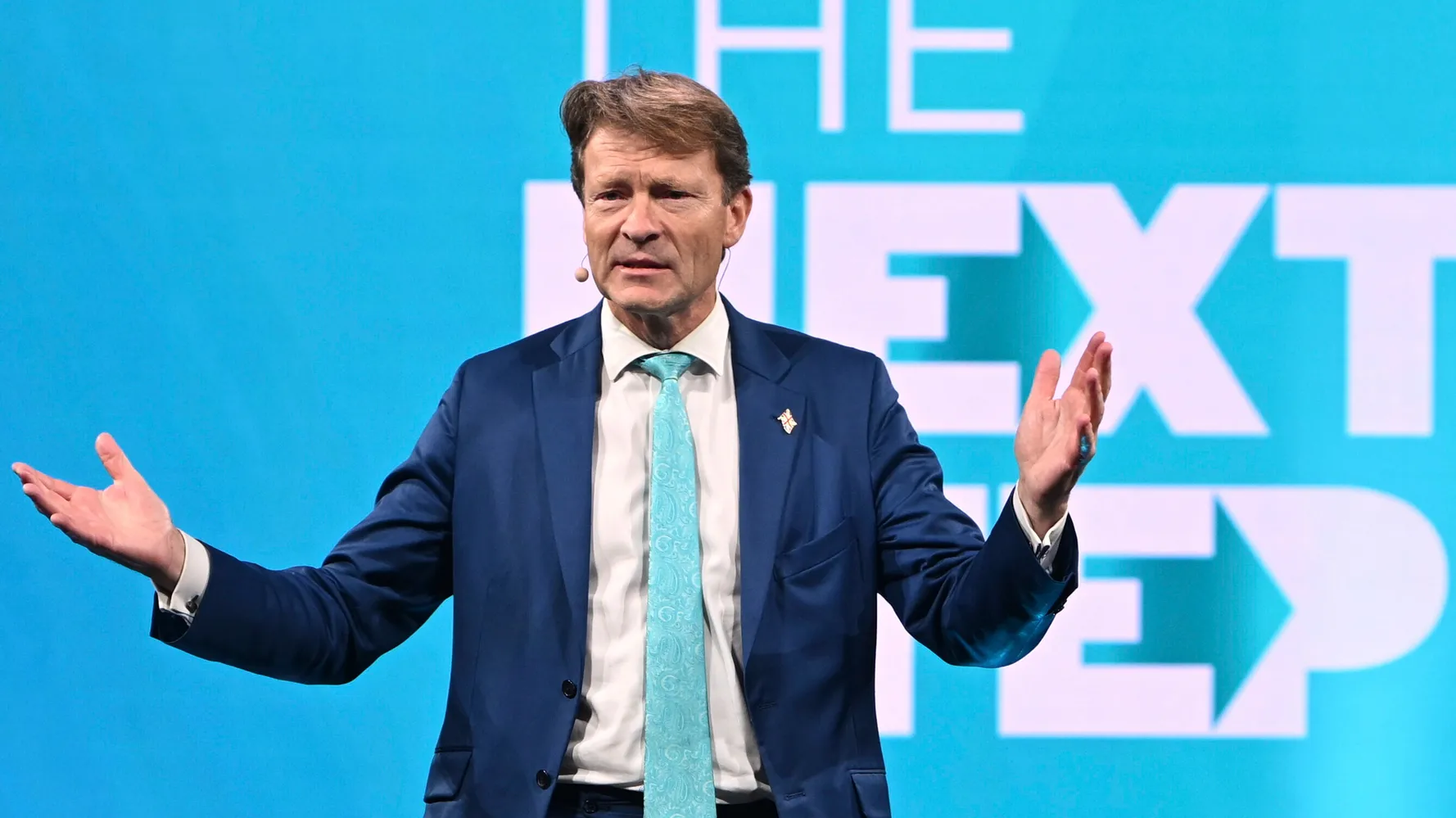Copyright orissapost

In October 2025, Dictionary.com announced its Word of the Year, not a traditional “word” as we once understood it, but a two-digit set of numerals: 67 (pronounced “six-seven”). At first glance, it might seem absurd. Why would a slang term made up of numbers earn such distinction? But that apparent absurdity is exactly the point. In choosing 67, the lexicographers at Dictionary.com signalled how language continues to morph under the influence of digital culture, generational shifts and the speed of online life. The rise of 67 According to Dictionary.com, the spike in interest was unmistakable. From the early summer of 2025, searches for “67” surged more than sixfold. Among two-digit numbers, it stood out like a lone signal amid static. The term emerged in multiple contexts, TikTok videos, meme threads, even lecture-hall jokes, and the pattern suggested this wasn’t just about the number itself, but what it represented: the language of a rising generation, the blur between meaning and play, and the speed at which digital slang can go global. The earliest trace-routes for 67 appear to lead to a song, “Doot Doot (6 7)”, by TikTok-popular artist Skrilla. From there it was remixed in meme form, adopted by basketball players in locker-room skits, and eventually turned into shorthand among Gen Alpha: when someone answered “67” to a question like “How was school today?” it meant “so-so”, “maybe this, maybe that”, but more than that, it functioned as a symbolic wink of membership. You didn’t say “sixty-seven”, you said “six-seven”. You used the hand gesture of both palms up, moving them alternately up and down. You were part of the in-group. And the adults were left chasing the dictionary. What does 67 mean? To quote directly: “67… It’s impossible to define. It’s meaningless, ubiquitous, and nonsensical.” And perhaps that is precisely the reason it resonates. In a world overloaded with content, algorithms feeding algorithms, feeds looping endlessly, the concept of “meaning” itself has come under pressure. 67 embodies this moment: the language of uncertainty, irony, fleeting context and the recognition that sometimes the reply is merely a connective gesture rather than an answer. Yet for the generation using it, 67 still holds meaning, the meaning of belonging, of coded communication, of “I’m here, in this moment, in this cultural lane”. It became the linguistic equivalent of a digital shrug. And in halves of a second, it zipped around the globe, affixed to posts, jokes, classrooms, chats, and comment threads. Why it matters Choosing 67 as Word of the Year is not just playful; it is a diagnostic snapshot of our times. Dictionary.com says the Word of the Year is a “linguistic time-capsule”, a word or phrase that reflects the stories we tell about ourselves. By awarding that title to such an ephemeral and odd term, lexicographers were signalling a shift. Language is no longer just about definitions, conjugations or proper usage. It’s about culture, digital behaviour, sub-cultures, memetics, and generational codes. In a year when technology, generational identity, digital overload and youth sub-culture dominated headlines, 67 turned out to be the most visible sign of change. It showed how quickly a term can spread, a six-fold increase in search volume since June, and how language can simplify, adapt, and mutate not just with intent but with algorithmic speed. The shortlist that almost was Of course, Dictionary.com didn’t arrive at 67 by accident. It presented a rich shortlist of other trending words and neologisms that also reflect cultural shifts. Among these: Agentic — once a term used in psychology to describe human agency; in 2025, it evolved to signify autonomous AI and machines taking initiative. Aura farming — a playful compound describing intentional cultivation of one’s presence or ‘vibe’, popularised by social-media trends. Broligarchy — a blend of “bro” and “oligarchy”, used to critique the concentration of power among a homogenous elite. Clanker — originally sci-fi speak for robots; now used to mock chatbots and AI systems, signalling growing unease with smart machines. Dynamite emoji (TNT, Taylor ‘n’ Travis) — a symbol that morphed from literal explosion to shorthand for a celebrity couple and fandom culture. Gen Z stare — a blank, expressionless look attributed to Gen Z, elevated from workplace quirk to full cultural meme. Overtourism — the surge of tourists overwhelming destinations; the term’s revival reflected post-pandemic travel chaos. Tariff — this old-school economic word resurfaced as a key political lever, showing that sometimes old language becomes new again. Tradwife — short for “traditional wife”, a term that sparked debate about gender, identity and modern domestic ideals. Each of these spoke of a facet of 2025: AI anxiety, youth identity, tourism pressure, digital culture, and celebrity-driven lexicons. But none captured the psychedelic, slippery, widespread usage of 67. What 67 reveals about culture The ascendancy of 67 suggests several broader lessons: Language is democratised — Young people are not just passive consumers; they invent, remix and repurpose language. A term can emerge from a song, a video, a meme and within weeks be worldwide. Meaning is porous — 67 doesn’t have a fixed definition. That is part of its power: it is at once “so-so”, “maybe”, “I’m part of this”, and “I refuse to answer”. It flips between sincerity and irony. Speed is everything — The six-fold search increase, the memes, the classroom references all point to how quickly a term can become global. In pre-Internet eras, a new word might take years to spread. Now it’s weeks or days. Digital culture rewrites language boundaries — Terms no longer live only in dictionaries or academic jargon but on social streams, comment sections, gaming chats, and classroom WhatsApps. Language reflects identity and belonging — Saying “67” signals you’re tuned in. Not knowing it signals you’re slightly out of the loop. This mirrors how culture, identity and language are increasingly intertwined. Looking ahead If 67 is a time capsule of 2025, what does that mean for 2026 and beyond? It tells us that tracking language cannot just focus on political slogans, policy terms or technical vocabularies. It must pay attention to threads, memes, comment threads, youth culture, and algorithmic virality. It suggests that lexicographers must broaden their scope, slang, numerals, emojis, and gestures; all these are legitimate parts of our evolving lexicon. Moreover, 67 reminds us that not all language is about meaning. Some language is about connection. It says: I understand you. I’m in this. Let’s move on. That kind of linguistic shorthand is transformative in a media-saturated, ultra-connected age. For the adults struggling to understand it, the parents, teachers and dictionary-users — the lesson is simpler. Don’t search for a strict definition. Instead, observe the behaviour: how the word is used, when people gesture “six-seven”, what tone it evokes. The meaning lies in the usage, not the dictionary definition. Why it works One reason 67 received the Word of the Year title is not just usage volume but cultural resonance. The lexicographers looked at multiple data streams: headlines, social searches, meme volume, and classroom chatter. They concluded that this term did something bigger than merely trend: it captured a generational shift, a linguistic gesture of online youth culture, a notion of belonging and a digital wink. It also reflects a world where adults see youth using a term that seems meaningless — and yet recognisably expressive. That tension between older generations and digital youth culture is part of the reason the term generated so much attention. The take-away In choosing “67”, Dictionary.com has done more than pick a weird slang word. It has drawn attention to how our language is changing, where it’s going, and what it says about us. In a world where digital life is constant, content never sleeps, and youth culture moves in streams, language becomes faster, leaner, less literal, and more about identity and group membership than just words. So next time you hear someone say “six-seven”, pause for a moment. They’re not just answering your question, maybe. They’re signalling: I’m part of something new. And maybe, just maybe, a small two-digit number is the perfect word for an age that moves at algorithmic speed.



